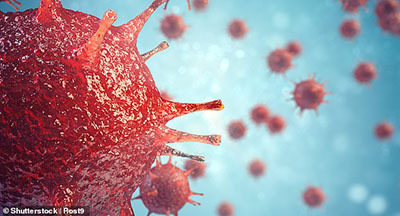There are nearly 200,000 different viruses lurking in the depths of oceans all over the world, a study has claimed.
This staggering amount of viral life was found in five oceanic regions, dubbed distinct ecological zones, located in the entire Arctic and Antarctic oceans as well as certain depths of warmer oceans, according to Daily Mail.
Scientists said that most of the viruses have never been seen before and that this study found 12 times as many viruses than were previously known.
The findings of the 195,728 viruses could also reveal how pathogens affect ocean ecosystems.
Most of the viruses were found to be harmless to humans but could infect marine life like whales and fish.
The study also suggests that it could help researchers discover how to combat climate change by bio-engineering the ocean
Five distinct ecological zones throughout the world were identified which includes all depths of the Arctic and the Antarctic, and three distinct depths of temperate and tropical regions.
The findings were made during a pole-to-pole marine expedition and took over a decade to complete on a vessel known as Tara.
It was used to collect ocean samples from depths of up to 13,000 feet (4,000 metres).
The samples were filtered and shipped to labs.
They identified new strains from analysing other microbes and living creatures the new about that live in the ocean and comparing their specimens.
Marine organisms produce half the oxygen humans breathe, and the ocean removes half the carbon dioxide that humans emit into the atmosphere.
The new research helps scientists more accurately calculate the balance of oxygen and carbon dioxide in the atmosphere.
More life below in the oceans means more CO2 can be converted into organic carbon and biomass – rather than CO2 acidifying the oceans, the study said.
Through the research, scientists could manipulate viruses in a way that would remove even more carbon dioxide from the air – thus fighting climate change.
Microbiologist Matthew Sullivan, from Ohio State University, took part in the research and explained: ‘Having a new map of where these viruses are located can help us understand this ocean carbon ”pump” and, more broadly, biogeochemistry that impacts the planet.
‘Previous ocean ecosystem models have commonly ignored microbes, and rarely included viruses, but we now know they are a vital component to include.’
N.H.Kh

